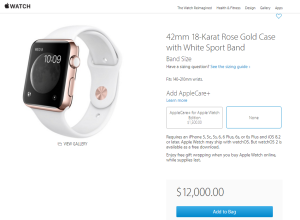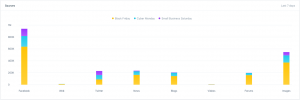It’s not just the latest buzzword. Columnist Peter Isaacson discusses the impact of AI on B2B and how you can incorporate it into your own marketing processes.

We’re just a couple of months into 2017, and you may already be sick of hearing about the latest overhyped marketing trend: artificial intelligence (AI). Before you sigh and think, “Really, another one?” let’s take a few minutes to explore how this trend will actually translate into results for your company.
AI’s promise for B2B
AI can mean a lot of things, from self-driving cars to Siri and Spotify. But basically, AI is really about taking basic tasks that humans do and automating them.
And since there are a lot of hands-on processes in B2B marketing, there’s a big opportunity for AI to make an impact. Here are just three areas where AI is already making a difference:
Data sources
As marketers, we’re no strangers to data. We spend a lot of time reviewing and cleansing data in order to get a complete picture of our customers and prospects.
But usually, this data (from CRMs, websites and marketing campaigns) is limited and only includes information on your customer’s interactions with you. The picture isn’t really complete without data that tells a story about how your targets behave when they’re not interacting with you.
There’s a lot to be learned from data that can be captured from the public web, things like blog posts, posts on social networks, news stories, contact databases and more. With AI, you’ll be able to tap into this larger data set to paint a more complete and relevant picture of your prospects and customers.
Account selection
In the past, sales teams have always sold to accounts, whether it was a relationship from their past or a target they inherited from a previous sales rep. Nowadays, more marketers are working with their sales teams to choose the accounts they both want to target.
Typically, they’ve approached this in a variety of ways — from looking at current customers and finding similar attributes to investing in account-identification solutions to find ideal prospects. But now, with all the data and insights that AI gives us access to, they’ll be able to identify the accounts that are most likely to buy.
For example, AI can tell you which companies you share clients with or which companies are investing in areas relevant to your business. This all comes together in a holistic view of prospects, so you can prioritize the ones with the most potential.
Hyper-personalization
This is perhaps one of most promising use cases for AI-driven marketing. Its value comes from its ability to eliminate one of the biggest problems in B2B marketing: spam.
We all receive too many messages across multiple channels that either aren’t meant for us or are painfully generic. Now, with AI, brands have the ability to scale personalized conversations to millions of buyers.
Until recently, these conversations only happened within a set of highly paid sales reps. AI lets brands have a unique conversation with each one of their valued accounts.
From dynamic ad copy and one-to-one emails and adaptive website content that’s tailored to your visitors, AI lets brands understand their buyer’s interests at scale, so they can craft messaging that resonates.
Incorporating AI
Although AI may sound futuristic to a lot of us, the reality is that it’s already part of our present, and it will only continue to grow in relevance. As you begin to think about adding AI into your marketing processes, here are some questions you should consider:
- How good is your data in the area you want to apply AI? To be really effective, AI systems need a lot data, but if the data is riddled with errors, you won’t be able to pull out actionable insights and patterns. You’ll want to know how good your data is in the area where you want to apply AI.
- Which business processes generate the most waste? The three use cases we discussed are a good place to start, but since every company is different, you’ll want to take a look at all the elements in your marketing mix.
- What technologies do you currently have in your stack? You might have to invest in some new technology. But before you can start vetting vendors, you’ll need to spend some time thinking about how that new technology will integrate with your current stack.
AI has a lot to offer B2B marketers, but before they can start reaping its benefits, they’ll need to spend some time investigating the problem areas in their marketing strategy.
While it may sound fancy and conjure up images of flying cars, AI isn’t a silver bullet. As with any big trend in B2B marketing, it requires thoughtful consideration and strategic implementation — by real, live humans.
Some opinions expressed in this article may be those of a guest author and not necessarily Marketing Land. Staff authors are listed here.
Marketing Land – Internet Marketing News, Strategies & Tips
(94)






